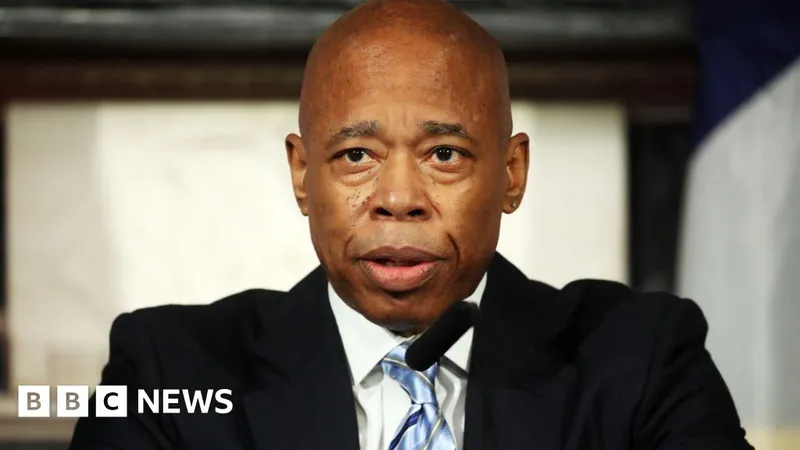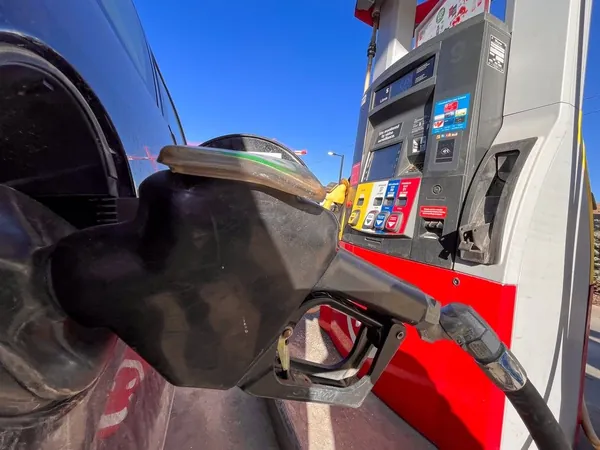
Pierre Poilievre Vows to Eliminate Carbon Levies for Industries and Consumers if Elected
2025-03-17
Author: Amelia
In a bold move, Conservative Leader Pierre Poilievre has pledged to eliminate both the carbon levy on industrial emitters and the consumer carbon tax if he gains power in the upcoming federal election.
Speaking from a steel wire manufacturing facility in L'Orignal, Ontario, Poilievre declared his intention to repeal the entire carbon-pricing framework that currently affects various Canadian industries, including steel, aluminum, and agriculture. “No taxes on consumers, no taxes on Canadian industries,” he reiterated, emphasizing that provinces would have the autonomy to tackle emissions without federal pressure to impose taxes.
This announcement comes on the heels of recent decisions made by Prime Minister Mark Carney, who recently minimized the consumer carbon levy to zero and has hinted at repealing the legislation altogether if he retains leadership. The elections are anticipated to be called imminently, leading to speculation about the political landscape in Canada.
Carney's proposed strategy includes increasing levies on major industrial polluters but lacks clarity on detailed plans. He has also mentioned the potential for a carbon border tariff aimed at foreign imports that contribute significantly to emissions during production.
Poilievre noted that the existing industrial carbon levy has already impacted vital sectors, particularly steel and aluminum, which have been struggling under the burden of tariffs imposed by the Trump administration. He warned that the combination of these tariffs and potential increased carbon taxes posed a dire threat to Canadian workers and industries. "It was a bad idea before the Trump tariffs; now, it is a full-scale assault on Canadian business," he asserted.
To foster a more environmentally friendly industrial sector, Poilievre proposed leveraging technology and tax incentives to drive lower emissions production. Additionally, he advocates for the development of more natural gas pipelines and liquefied natural gas facilities aimed at exporting to Europe and Asia while enhancing Canada's energy market competitiveness.
“I don’t see the value in closing a Canadian steel mill only to open one in China that emits significantly more greenhouse gases,” he stated, underscoring the need for sustainable practices that do not compromise domestic jobs.
Furthermore, Poilievre highlighted a study from the National Bank indicating that Canada could potentially reduce 2.5 billion tonnes of greenhouse gas emissions in India by exporting natural gas, thereby bolstering efforts to decrease reliance on coal.
As the political battle looms, Poilievre's stance on carbon pricing is set to be a pivotal issue, with implications not only for the economy but also for Canada's environmental policies in a global context.









 Brasil (PT)
Brasil (PT)
 Canada (EN)
Canada (EN)
 Chile (ES)
Chile (ES)
 Česko (CS)
Česko (CS)
 대한민국 (KO)
대한민국 (KO)
 España (ES)
España (ES)
 France (FR)
France (FR)
 Hong Kong (EN)
Hong Kong (EN)
 Italia (IT)
Italia (IT)
 日本 (JA)
日本 (JA)
 Magyarország (HU)
Magyarország (HU)
 Norge (NO)
Norge (NO)
 Polska (PL)
Polska (PL)
 Schweiz (DE)
Schweiz (DE)
 Singapore (EN)
Singapore (EN)
 Sverige (SV)
Sverige (SV)
 Suomi (FI)
Suomi (FI)
 Türkiye (TR)
Türkiye (TR)
 الإمارات العربية المتحدة (AR)
الإمارات العربية المتحدة (AR)